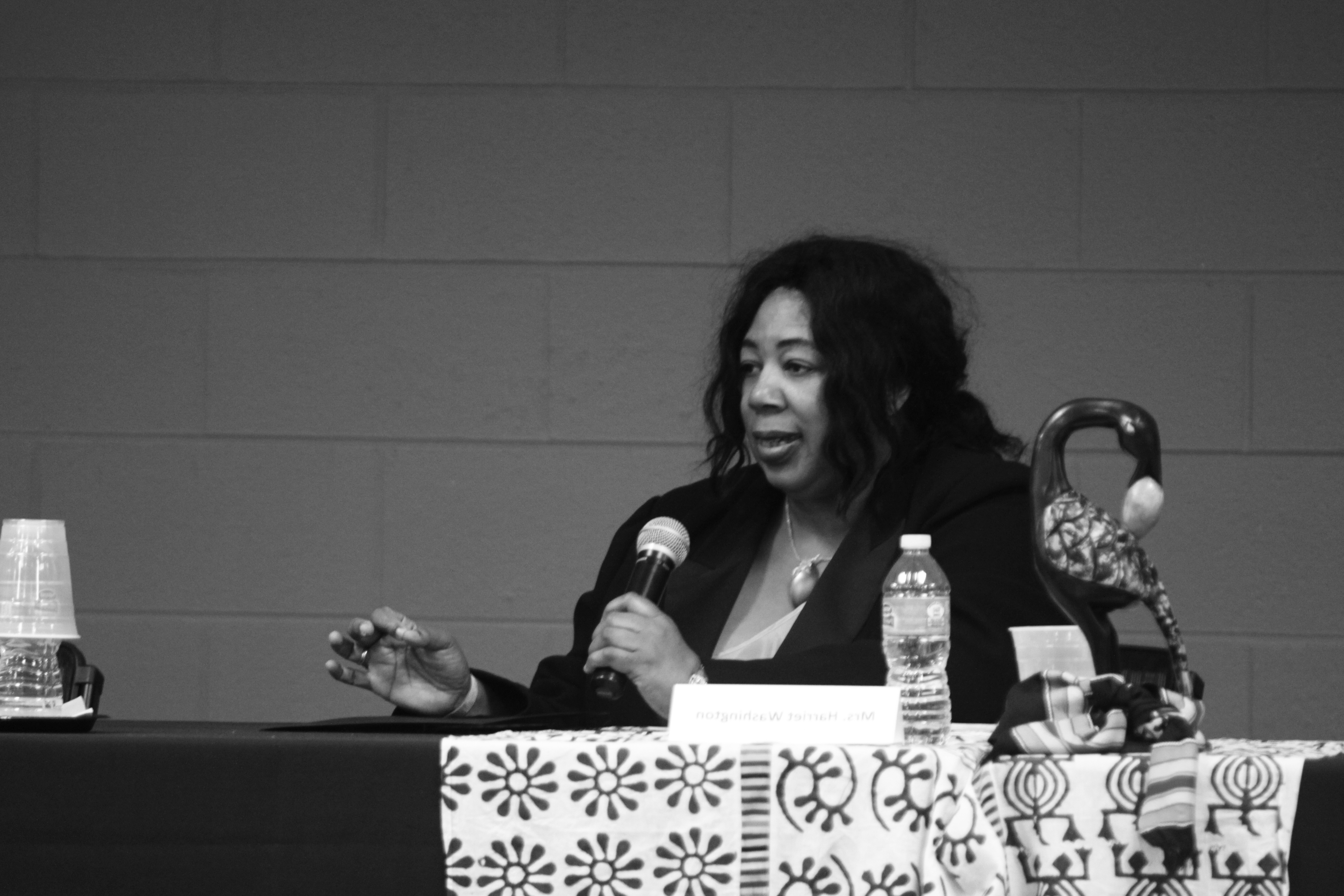Medical Apartheid

Author Discusses History of Medical Experimentation on African-Americans
Nia Doaks | Staff Writer
Two centuries ago, during enslavement, Black people were thought of as an entirely different species with unique medical profiles. Unlike white people, Black people were not expected to feel pain. They were seen as less intelligent and often used for painful medical experiments, according to award winning author Harriet Washington.
On Feb. 6, Washington came to N.C. State to discuss these and many other claims concerning enslaved Black people and their role in physicians’ medical trials.
Washington’s visit was a part of the Lawrence M. Clark Lecture series, an annual lecture hosted by the African American Cultural Center in honor of Dr. Lawrence M. Clark who made significant contributions to N.C. State’s African-American community and beyond, as former associate provost and professor of mathematics education.
Washington referenced her book, Medical Apartheid: The Dark History of Medical Experimentation on Black Americans from Colonial Times to the Present and explained to an audience of students, faculty and visitors, a number of inhumane experiments that were done on Black bodies during the time of slavery in the United States.
One practice Washington discussed involved subjecting Black women to painful experiments in order to find treatments for obstetric fistula, a complication that can arise during childbirth. J. Marion Sims, a southern physician who is regarded by some as the “father of modern gynecology” spearheaded the experimentation for this disorder. According to Washington, in his experiments, Sims would often have enslaved women forcibly held down so that he could administer the pain-inducing experimental treatments, which he performed on the women without using anesthesia.
Washington said Sims’ reasoning for why Black women developed obstetric fistula more often than White people was based on the speculation that they were “sexually immoderate” and “dirty.” According to Washington, this was not the case. More Black women experienced the complication because the damage attributed to it was most common among young mothers, and Black women sold into slavery were forced to reproduce at an earlier age, according to Washington.
“Scientific racism justified slavery and justified research,” said Washington. “Physicians are socialized in their training and taught things that aren’t true. Science practitioners are not always subjective.”
Some of the audience was left in disbelief, stun at Washington’s revelations about the ill treatment of enslaved Black people for medical gain. “It’s appalling to hear about the experimentation [that they did],” said Maurita Harris, a sophomore in psychology. “Just the fact that they had the audacity to assume that Blacks couldn’t feel pain even though they obviously had to hold people down while experimenting on them. It’s an indescribable feeling.”
According to Washington, doctors in that time period compared Black people to animals and used that reasoning to justify their experimentation.
“When you say people don’t feel pain you are depriving them of human qualities,” said Washington.
Though many things have changed since that time, Washington says it is the long history of medical wrongdoings which contributes to the Black community’s general distrust of doctors and medicine.
“Trust lies at the core of patient-physician relationships,” said Washington. “But black people were deprived of that trust… [and] today African-Americans and white people are still treated differently when it comes to [certain things].” Washington went on to explain that, even today, Black people are treated differently when it comes to pain relief because of the lasting assumptions that they ‘don’t feel pain’.
Washington’s book, Health and Medicine: A Social Justice Issue is available for purchase in the N.C. State bookstore.
- Categories: